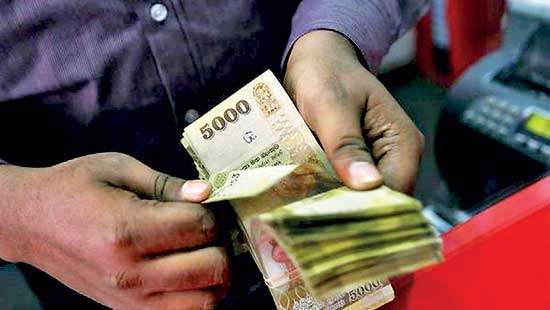

The worker remittance inflows to Sri Lanka this year are projected to decline by 19 percent year-on-year (YoY), driven by the global economic slowdown due to the coronavirus (COVID-19) pandemic as well as the steep decline in oil prices, according to the latest World Bank (WB) report.Â
The WB highlighted that global remittances are projected to decline sharply by about 20 percent in 2020, which would be the sharpest decline in recent history.
Accordingly, the remittance inflows to Sri Lanka are projected to decline to US $ 5.4 billion, from US $ 6.7 billion recorded in 2019.Â
Meanwhile, the remittances to South Asia are projected to decline sharply by 22 percent YoY to US $ 109 billion in 2020. “The deceleration in remittances to the South Asian region in 2020 is driven by the global economic slowdown due to the coronavirus outbreak as well as oil price declines.Â
The economic slowdown is likely to directly affect remittance outflows from the United States, United Kingdom and EU countries to South Asia. Falling oil prices will affect remittance outflows from the GCC countries and Malaysia,†the WB said.Â
Over 50,000 Sri Lankan migrant workers stranded mainly in the Gulf countries are anxiously waiting to return to the country amid health risks, job losses and pay cuts caused by the COVID-19 pandemic.Â
“Effective social protection systems are crucial to safeguarding the poor and vulnerable during this crisis, in both developing countries as well as advanced countries. In host countries, social protection interventions should also support migrant populations,†WB Social Protection and Jobs Global Practice Global Director Michal Rutkowski said.
The report further predicted that remittances are likely to remain subdued in 2021, below the pre-coronavirus levels, as the virus-related global slowdown and travel restrictions would affect migratory movements.Â
It noted that the projected remittance growth of 5.8 percent YoY in 2021 would keep the total South Asian regional flows at about US $ 115 billion.
However, the WB pointed out that remittance flows would become even more important as a source of external financing for low and middle-income countries (LMICs) as the fall in foreign direct investment is expected to be over 35 percent.Â
Six women have already received services from the newly established sperm bankMore than 50 men…
The Sri Lanka Tourism Development Authority (SLTDA) has reported that a total of 229,298 tourists…
The Colombo High Court has sentenced former Chief Minister of the North Central Province S.M.…
Shammi Silva, who was recently re-elected uncontested as the Chairman of Sri Lanka Cricket (SLC)…
The Department of Motor Traffic (DMT) has made it mandatory to provide the Taxpayer Identification…
The Inland Revenue Department has announced that individuals earning less than Rs. 1.8 million annually…